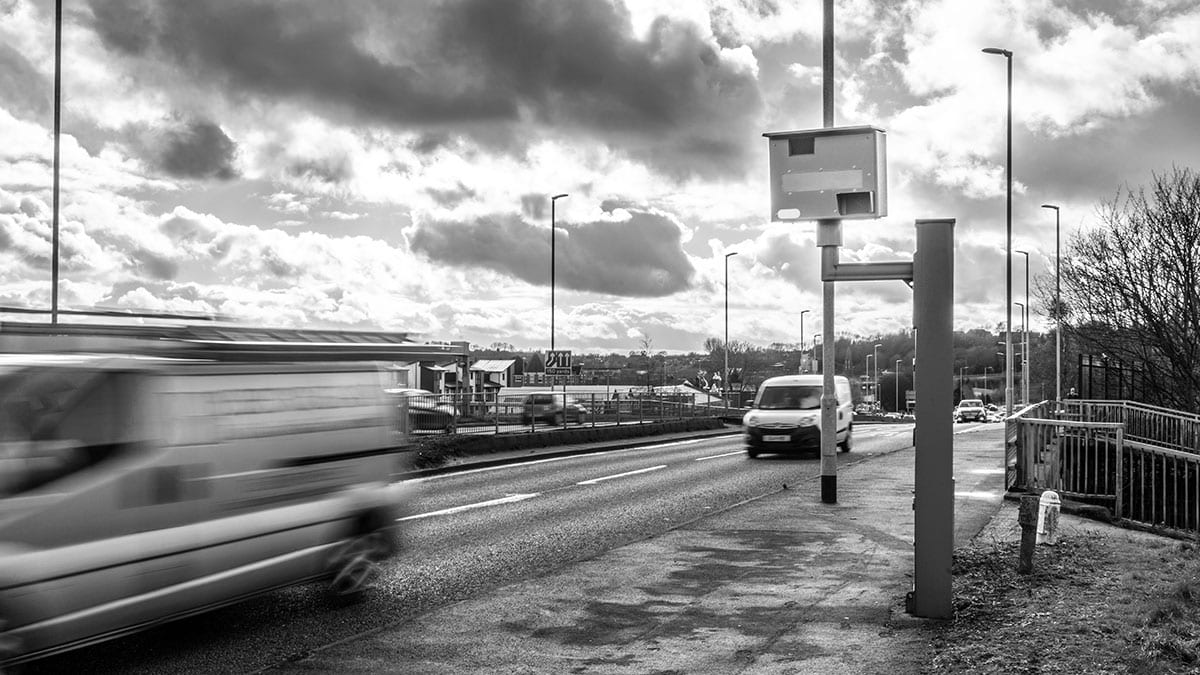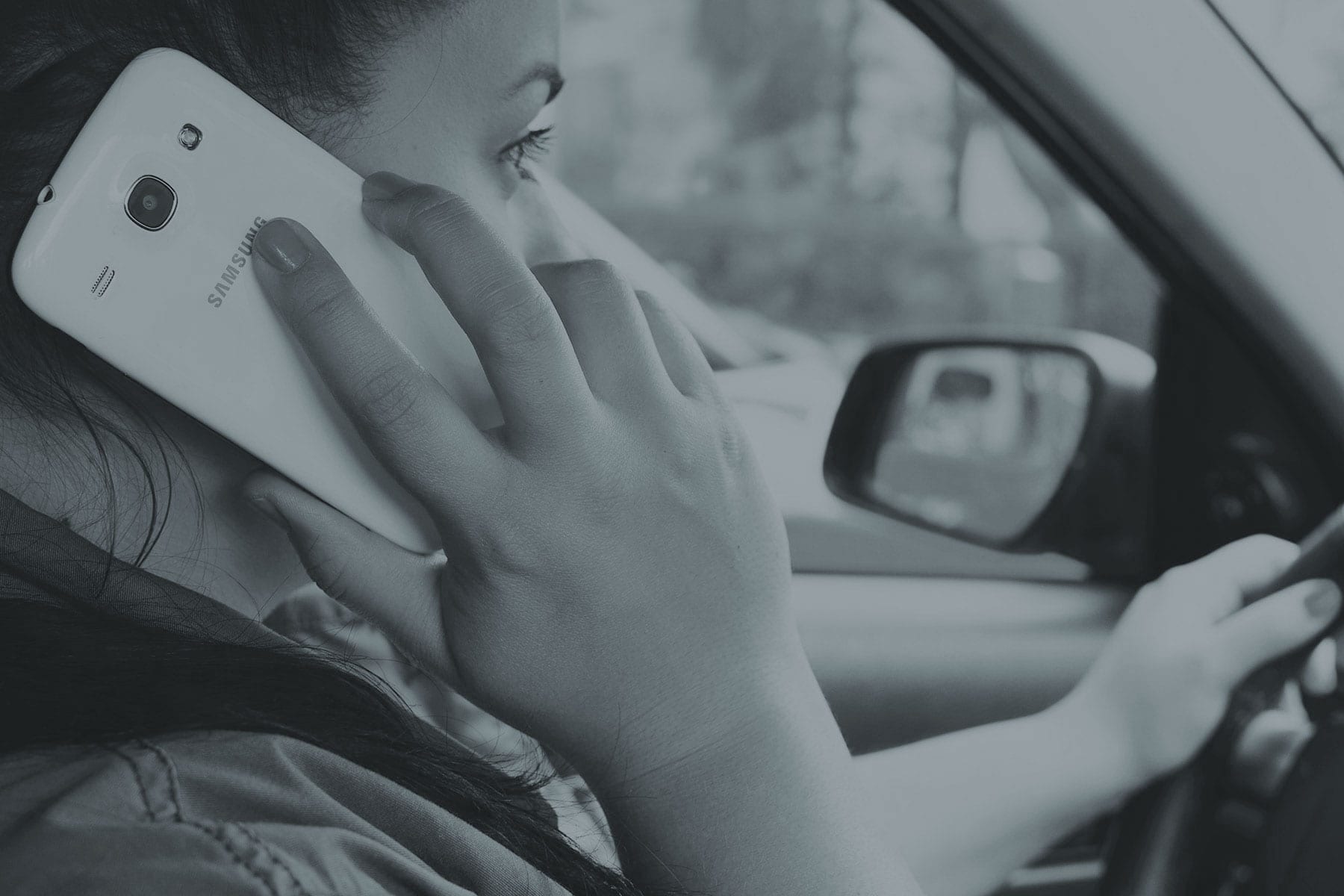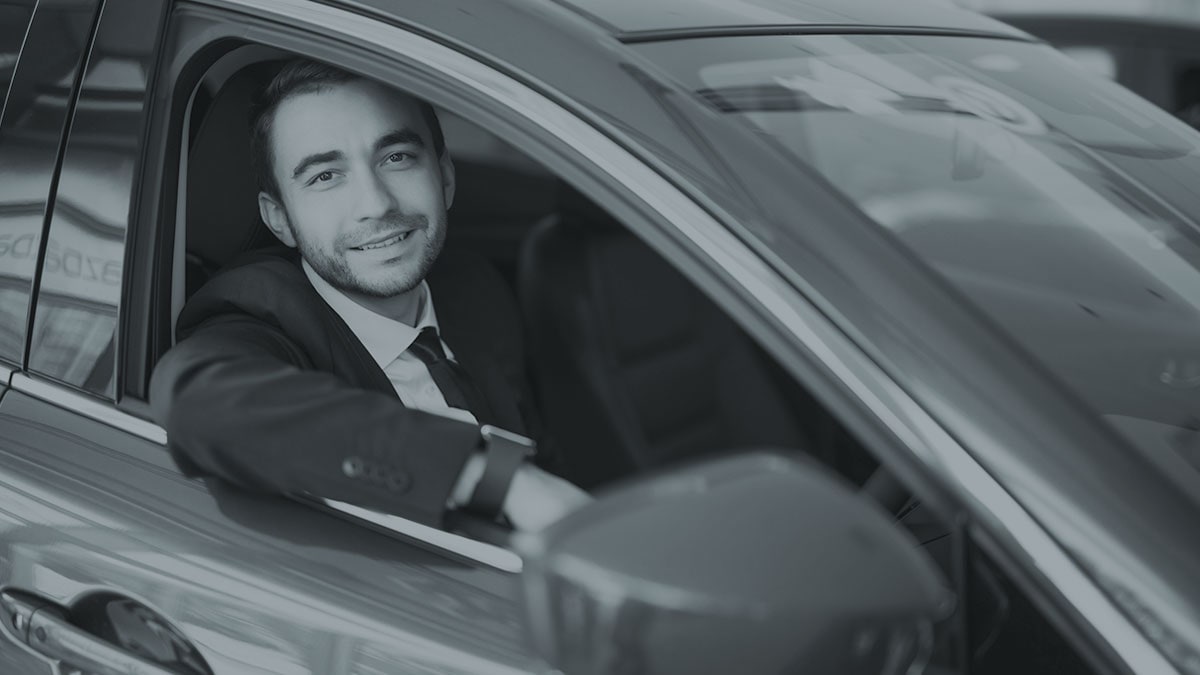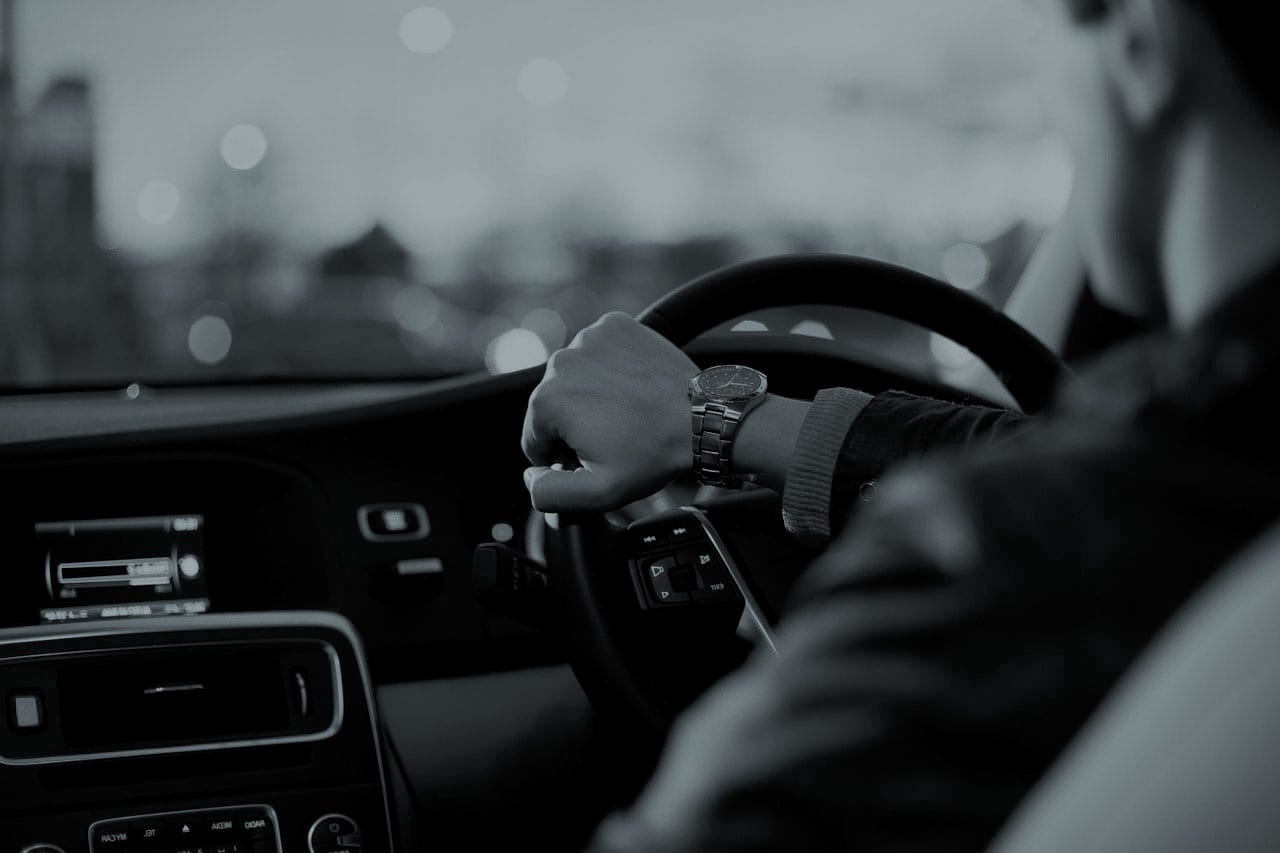We speak with clients accused of using a phone while driving every day. We understand mobile phone law inside out and have extensive experience in providing defences for these extremely common driving offences.
If you have been accused of using your mobile phone while driving, get in touch today to discuss your case with an expert for free on 03330 096 275.
Using your phone while driving – understanding the risks
23% – of all drivers admit to making or receiving calls whilst driving
51% – of 17 – 24 year old admit to using hand held mobile phones whilst driving
*RAC report on motoring 2019
25 – number of people who died in 2018 from distraction caused by a mobile phone
423 – number of road traffic accidents in 2018 resulting from distraction caused by a mobile phone
*Government statistics https://www.gov.uk/government/statistical-data-sets/ras50-contributory-factors
Being distracted by using a phone while driving leads to accidents, injury and death. Make sure you are always fully focussed on the road.
Mobile phones and driving – Mobile Phone Law
It is illegal to use a hand-held device for any form of interactive communication whilst driving. This includes holding a mobile phone to make calls, send text messages or photos, or to use the internet. It also includes using devices like Sat Navs.
You may only use these devices with full hands free access.
Mobile phones and driving – law update 2020
This year, an update to legislation will make it illegal to hold your phone for any reason whilst driving or in charge of your vehicle. This will mean that activities that were permitted because they did not involve interactive communication, such as shuffling a music playlist, recording a voice note, or take a video or photograph, will now be illegal.
This update follows a case in 2019 (DPP v Baretto) which saw the defendant successfully overturn a conviction on appeal by arguing his device was not being used for interactive communication.
Mobile phone offences – Penalties
Standard penalties and implications for drivers
- On the spot fine or prosecution in court
- 6 licence points
- Fixed penalty – £200
- Maximum fine in court – £1,000
- Court discretion to disqualify driver
- Significantly increased insurance premiums
Penalties for drivers of HGVs or buses
- On the spot fine or prosecution in court
- 6 licence points
- Fixed penalty – £200
- Maximum fine in court – £2,500
- Court discretion to disqualify drivers
- Driver conduct hearing with the Traffic Commissioner (even if your offence was committed in your private vehicle)
- Suspension of your professional licence
New Drivers (licence gained within the last two years)
- On the spot fine or prosecution in court
- Immediate disqualification
- Fixed penalty – £200
- Maximum fine in court £1,000
- Significantly increased insurance premiums
Other charges associated with using a mobile phone while driving are Dangerous Driving and Causing Death by Dangerous Driving. These charges can be incredibly serious. Causing death by dangerous driving can carry a 14 year prison sentence as well as a mandatory two year exclusion from driving. Find out more about these offences here
Charges such as careless driving can also be brought alongside, or instead of, mobile phone offences.
Building your defence
Our motoring solicitors are experts in mobile phone law and can pursue a number of strategies in establishing your defence.
Legal reasons for using a phone while driving
If you are able to prove you were using your phone for a legally permitted reason, this can form the basis of a successful defence.
It is legal to use a mobile phone while driving to respond to a genuine emergency by calling 999 or 112, IF, it is unsafe to stop driving whilst you make the call.
It is also legal to use your phone if you are safely parked. Remember, being safely parked is not the same as your car being stationary.
A forensic approach to evidence analysis
The burden in criminal cases is always on the police and prosecutors to prove guilt beyond a reasonable doubt. In prosecuting a mobile phone offence, police must prove that:
1) you were driving at the time of the offence. You can be considered to be driving even if your car is not moving. If you are stopped in a queue or at traffic lights you will likely still be considered to be driving under the law.
2) you were ‘using’ your mobile phone or device. This will soon include any activity except for legally permitted exceptions.
3) the device can be classified as ‘hand-held’.
4) you were on a public road. You cannot be found guilty if you were driving on private land.
We will examine these issues in forensic detail with you, along with all of the evidence against you, such as the witness statement of the police officer who stopped you.
Considering lesser offences
We can minimise the penalties you might face by securing lesser charges. For example, if police cannot prove that you were actually holding the device, they may only be able to progress a lesser charge of careless driving, which carries less penalty points and a smaller fine.
To read more about careless driving click here



